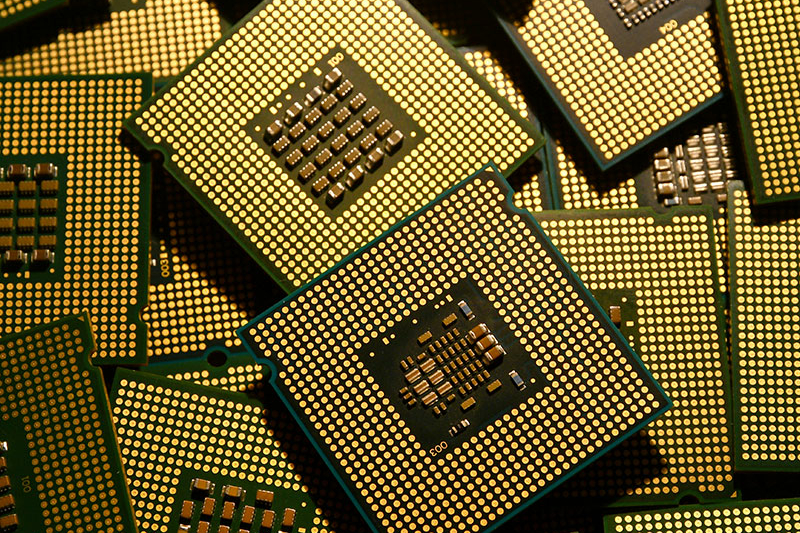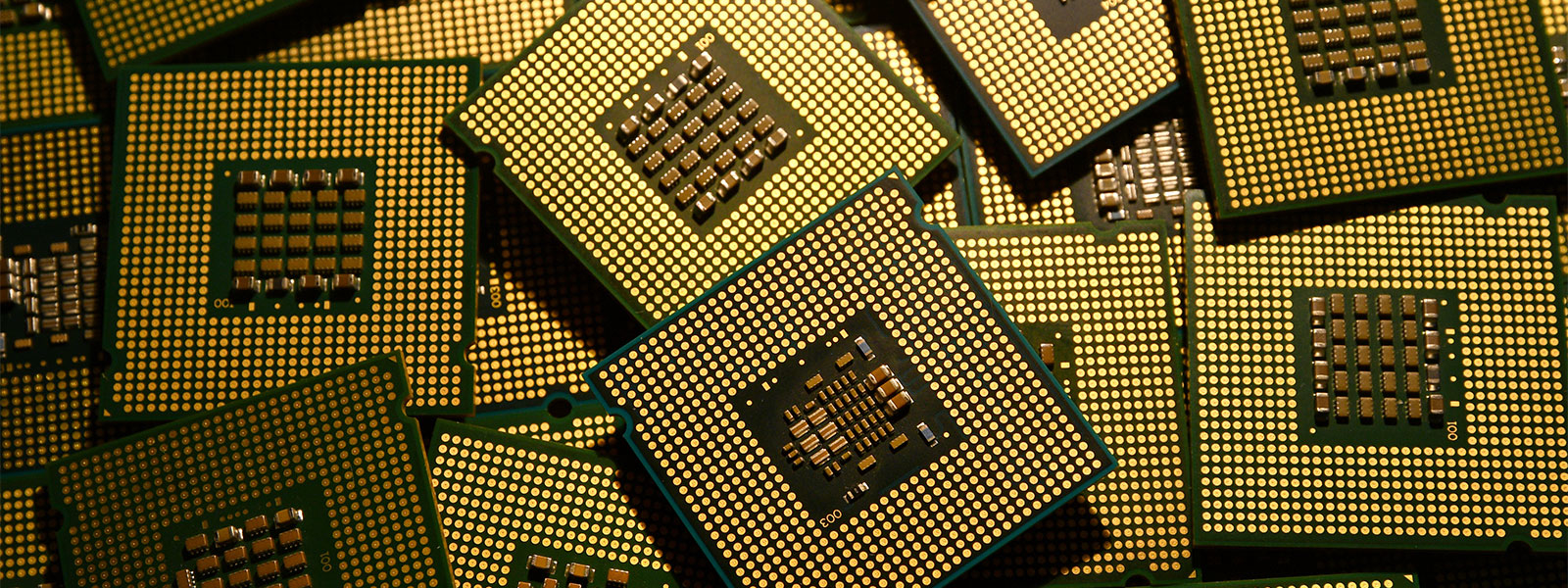Europe takes a tougher approach to technology mergers
Taiwanese companies should keep Europe in mind when planning new deals

While we may be weathering the COVID-19 pandemic, the geopolitical fractures and economic decoupling that reshaped the global business landscape in 2020 have continued to accelerate throughout 2021. It might be too early to say the global markets are "back to business," but there are strong signs that we are on the right track to return to normalcy.
In the Americas, the transactional markets are booming, particularly for M&A and capital markets transactions. The expected passing of a new significant infrastructure bill by the US Biden Administration is expected to create significant infrastructure spending and investment opportunities in the years ahead. Within Europe, the Middle East and Africa (EMEA), we see the rapid emergence of environmental, social and governance (ESG) thematic investments, as well as a renewed focus on technology and healthcare transactions. Private equity (PE) and venture capital (VC) investments into Africa, often viewed as the next growth frontier, have also increased. In Asia-Pacific, Sino-US decoupling and the emergence of special purpose acquisition companies (SPACs) have given rise to significant changes in traditional fundraising avenues and exits.
Moreover, these trends are taking place amid the continuing uncertainties of the world’s varying responses to the COVID-19 pandemic and complex, new global regulatory developments involving trade, sanctions and other geopolitical business issues. For companies and investors based in Taiwan, it can be a challenge to navigate these global risks while seeking out the many growth opportunities that still exist.
We hope this year's report for Taiwanese businesses and investors provides helpful guidance amid a time of historic global transitions.
We begin by reviewing European competition authorities’ heightened focus on the technology sector and tough approach to technology mergers. Similarly, Taiwanese companies doing business in the US may feel the impact as US antitrust policy increasingly targets the technology industry.
Taiwanese businesses and investors should prepare for foreign direct investment (FDI) regulatory scrutiny early in their deal processes, particularly in cross-border M&A transactions involving Europe, the US and other countries, as well as investments into "sensitive" sectors that increasingly include technology, healthcare and other data-driven industries.
Due to the ongoing regulatory changes, global and regional businesses involved in US-Sino trade should balance the competing restrictions while maintaining a cautious approach.
Taiwanese companies exposed to the US market need to understand the rise in US disputes over standard essential patents (SEPs) and how US juries will likely resolve related damages.
We will also discuss how the SPAC and de-SPAC process can help high-potential target companies gain liquidity and the particular opportunities this presents for Taiwanese companies.
Finally, our update on Asia-Pacific financing trends presents insights into areas of financing optimism and robust deal activity throughout the capital markets.
We look forward to discussing these and other issues with you.
Taiwanese companies should keep Europe in mind when planning new deals

By Eileen Cole and Anna Kertesz
Taiwanese companies could feel the impact of the current push for wide-scale change

By Tilman Kuhn and Karalyn Mildorf
Expanded reviews and more resources: The view from 2021

By Cristina Brayton-Lewis and Bingna Guo
Navigating complexities under a new US administration

Taiwanese businesses should watch for continued assertions on 5G, IoT

By Steven Sha and Daniel Yeh
Current market options for Taiwanese companies seeking liquidity

By Charles McConnell and Manley Leung
What's next for Taiwanese banks and businesses?


Taiwanese businesses should watch for continued assertions on 5G, IoT
The number of disputes involving standard essential patents (SEPs) is increasing, both in the United States and worldwide. This trend is expected to continue, as implementers release technologies for 5G and Internet of Things (IoT) applications—technologies that make heavy use of industry standards. Currently, by some estimates, more than 30,000 patent families have been declared "essential" to 5G.
Since it is effectively impossible for Taiwanese companies to monitor and license tens of thousands of patents, they therefore must be prepared to deal with assertions in the US courts.
For Taiwanese companies exposed to the US market, it is important to understand how the US deals with disputes involving SEPs, and how that approach differs from approaches taken in other jurisdictions, such as Europe and mainland China. Perhaps most notably, in the US, a jury, not a judge, will resolve disputes over fair, reasonable and non-discriminatory (FRAND) damages. In addition, there is increasing uncertainty about whether US antitrust laws can be used to enforce FRAND licensing obligations and to police SEP activities.
In most countries in Europe and Asia-Pacific, judges decide disputes over FRAND damages for SEPs. This typically requires a detailed investigation of prior licensing activity, sales and economic data and expert analyses. The resulting judicial opinions are lengthy and typically set royalty rates that cut across entire worldwide portfolios of patents.
However, in the US, unless both parties agree, a jury—not a judge—will resolve FRAND damages disputes. This is true whether the case involves an assertion of only a small number of SEPs or a broad dispute about an entire portfolio.
For example, a US district court judge in the Central District of California attempted to resolve a dispute between Ericsson and TCL by setting a global portfolio-wide rate for a set of Ericsson SEPs at rates ranging from 0.90 percent to 0.45 percent of the sales price of TCL handsets and tablets. Ericsson appealed the judge's rate determination, and a US Federal Circuit Court of Appeals held that Ericsson had a right under the Seventh Amendment of the US Constitution to have a jury set the amount of damages for its SEPs.1 TCL subsequently filed a petition for a writ of certiorari to the US Supreme Court. That request was denied, and the parties settled in July 2021.
Similarly, in an August 2020 decision, the Federal Circuit held that disputes over whether patents are in fact essential to industry standards must also be resolved by a jury.2
Together, these two recent cases demonstrate that US disputes over FRAND/SEP issues will continue to be sent to juries, rather than judges.
Two parties in the US could agree to have a judge resolve their disputes. However, without such an agreement, the task of setting FRAND royalty rates will be left to a jury of ordinary individuals who have no technical or economic expertise.
This has several practical implications. Decisions by judges on FRAND licensing disputes, such as decisions from the UK and Germany, provide a detailed analysis of how judges reach their conclusions on the proper measure of damages in FRAND cases. These decisions can be helpful for subsequent FRAND disputes and license negotiations. On the other hand, juries provide no such analysis. A jury is effectively a "black box" whose only output is a decision stating the amount of damages. This lack of clarity may be welcome for some who wish to keep details about licensing activities secret. At the same time, it prevents companies seeking to implement certain technologies from understanding how rates are set for SEPs.
This may make future negotiations over SEP licenses increasingly difficult.
In some jurisdictions, antitrust may be a tool to prevent SEP holders from abusing a dominant market position.
Recent developments in the US, though, show increasing uncertainty as to whether the US antitrust laws will follow practices in Europe and Asia-Pacific.
For example, in an antitrust case against Qualcomm, the US Federal Trade Commission and the US Department of Justice Antitrust Division often took differing and inconsistent positions as to whether Qualcomm had violated antitrust laws through its SEP licensing activities. Ultimately, the US Ninth Circuit Court of Appeals in the US rejected all antitrust theories against Qualcomm, calling its SEP licensing practices "hypercompetitive" but not an antitrust violation.3 The full Ninth Circuit rejected the FTC's attempt to overturn this decision.4
More recently, in a dispute between Continental and Avanci in the US Northern District of Texas, Continental argued that the use of a patent pool to set FRAND royalty rates violated US antitrust laws. The US Department of Justice maintained that antitrust laws did not compel SEP owners to license SEPs at any particular rate. The district court in Texas ultimately rejected Continental's theories, finding no antitrust injury.5
While these two court decisions seemingly signaled a low likelihood that US antitrust laws would be a tool for policing FRAND and SEP issues, the recent change in US presidential administrations has brought new uncertainty.
In April 2021, the Biden administration moved to reclassify prior guidance on SEP licensing as mere "advocacy," indicating a return to prior rules that attempted to make it more difficult for SEP holders to seek injunctions in US courts. It remains to be seen whether this change reflects a desire by the Biden administration to move aggressively into regulating SEPs, or whether it is simply an attempt to undo certain Trump administration policies viewed as more favorable to SEP holders.
Disputes over SEPs and FRAND will continue to grow, and expected royalties in these cases can be significant, especially given the large expected adoption of standards for 5G and IoT applications. It is important for Taiwanese companies that implement standard essential technologies to monitor these developments and use legal counsel who specialize in these unique and challenging patent disputes.
1 See TCL Commun. Tech. Holdings Ltd. v. Telefonaktiebolaget LM Ericsson, 943 F.3d 1360 (Fed. Cir. 2019).
2 See Godo Kaisha IP Bridge 1 v. TCL Commun. Tech. Holdings Ltd., 967 F.3d 1380 (Fed. Cir. 2020).
3 See Federal Trade Commission v. Qualcomm Inc., 969 F.3d 974 (9th Cir. 2020).
4 See FTC v. Qualcomm Inc., 2020 U.S. App. LEXIS 34011 (9th Cir. Cal., Oct. 28, 2020).
5 See Cont'l Auto. Sys. v. Avanci, 485 F. Supp. 3d 712 (N.D. Tex. Sep. 10, 2020).
White & Case means the international legal practice comprising White & Case LLP, a New York State registered limited liability partnership, White & Case LLP, a limited liability partnership incorporated under English law and all other affiliated partnerships, companies and entities.
This article is prepared for the general information of interested persons. It is not, and does not attempt to be, comprehensive in nature. Due to the general nature of its content, it should not be regarded as legal advice.
© 2021 White & Case LLP